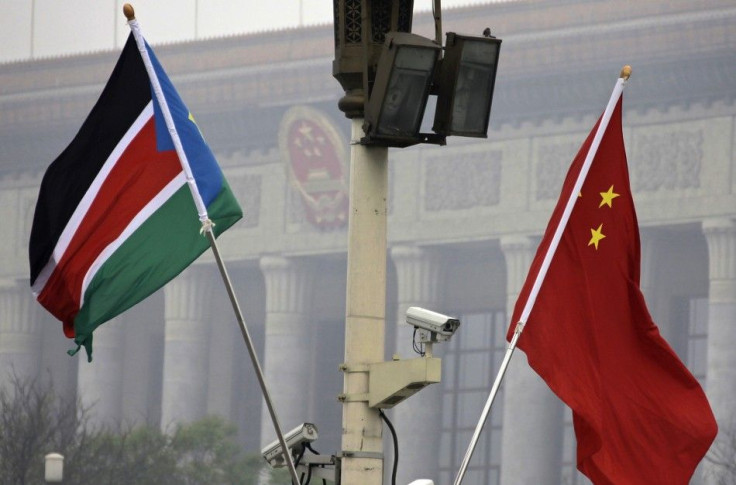South Sudan Wants Chinese Pipeline To Bypass The North

South Sudan's President Salva Kiir met with his Chinese counterpart Hu Jintao Monday in Beijing as the young African nation seeks investment for an alternate pipeline that would allow it to circumvent exporting oil through its northern rival Sudan.
Recent clashes between the south and north over key oil resources along the border have brought the formerly united countries to the brink of war. That has resulted in a breakdown of the agreement which saw the landlocked, but oil-rich, South Sudan send crude through the more developed Northern infrastructure to the Red Sea.
Sudanese President Omar al-Bashir announced last week that the North will no longer allow the South to export oil through its pipelines, after the Sudanese military re-secured the Heglig oilfields seized by southern forces on April 10.
I don't think our oil will flow through Sudan any more again, said South Sudanese peace negotiator Pagan Amum, the Sudan Tribune reported.
China has invested heavily in oil infrastructure in Sudan, a development which preceded the formal split between the two Sudans in July 2011.
During Mr. Kiir's five-day state visit to China, he is expected to discuss an alternate pipeline, possibly through neighboring Kenya.
It could be a consortium and China could join, Amum told the Financial Times. They are positive, they are looking into it, they have agreed to provide South Sudan with technical assistance in building an alternative pipeline.
South Sudan, which controls 75 percent of the formerly united country's oil reserves according to Russia Today, already shut down its 350,000-barrel-a-day production in February, putting pressure on energy-hungry China to find a quick solution to the sSuth's export problem..
Amum projected that a new pipeline could be built within 30 months to four years, the Times reported.
But South Sudan, according to the peace negotiatior, does not seem to be in hurry: We are in a situation where we don't need to be producing the oil now because we can have a future sale of oil -- we have the reserves; everybody knows the oil will flow after the construction of the pipeline, Amum told the Tribune.
© Copyright IBTimes 2024. All rights reserved.











